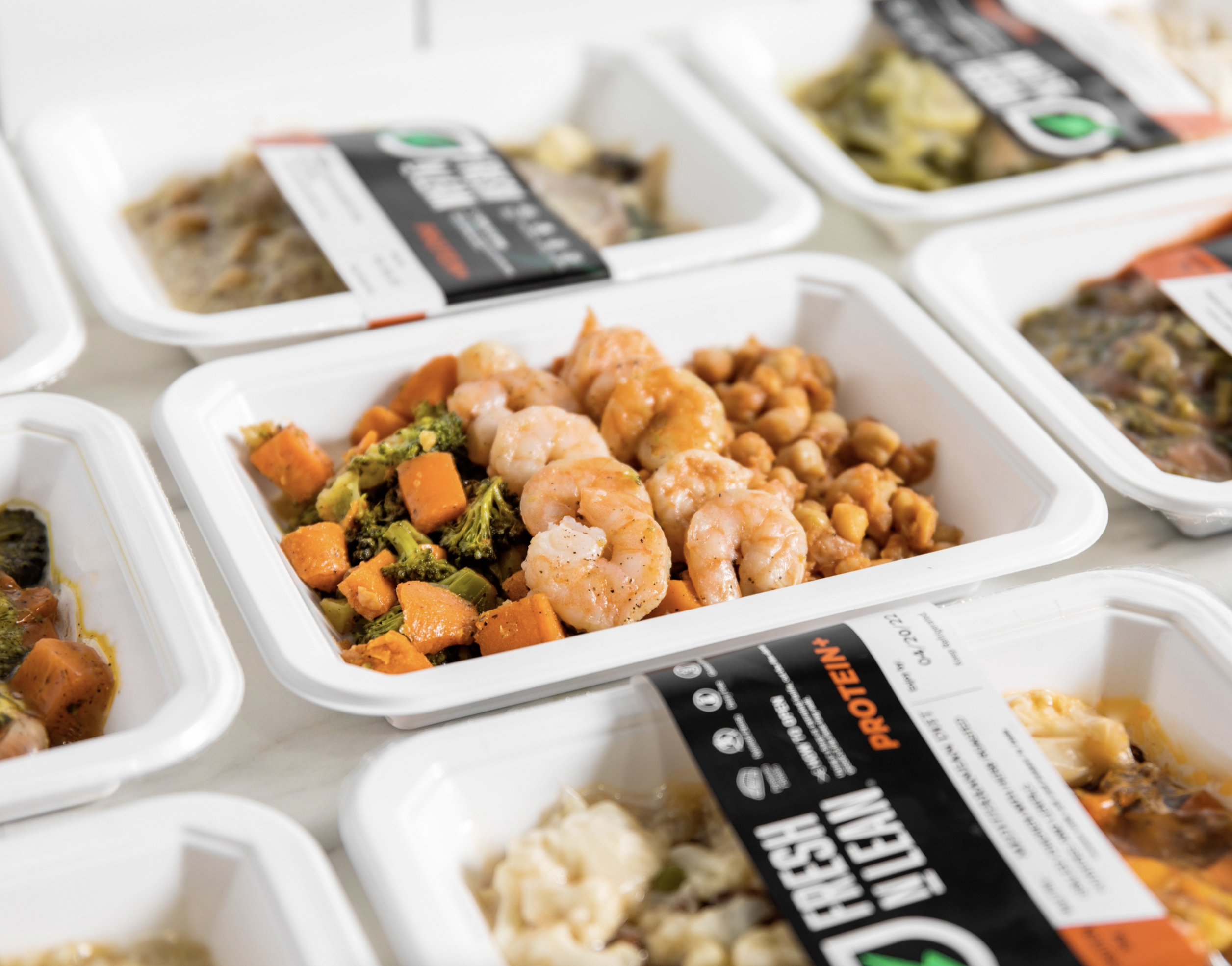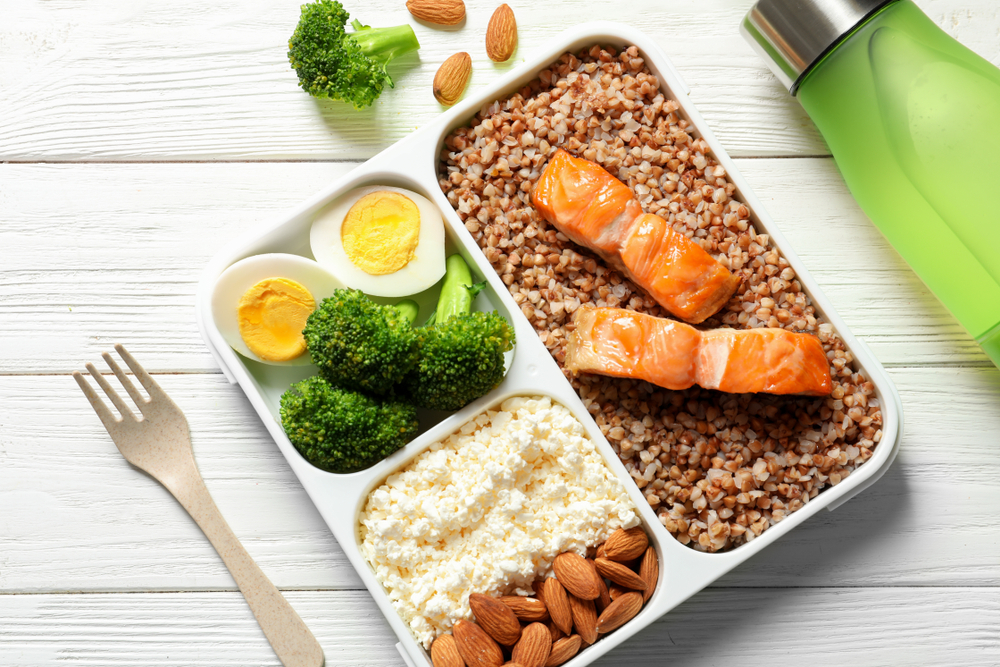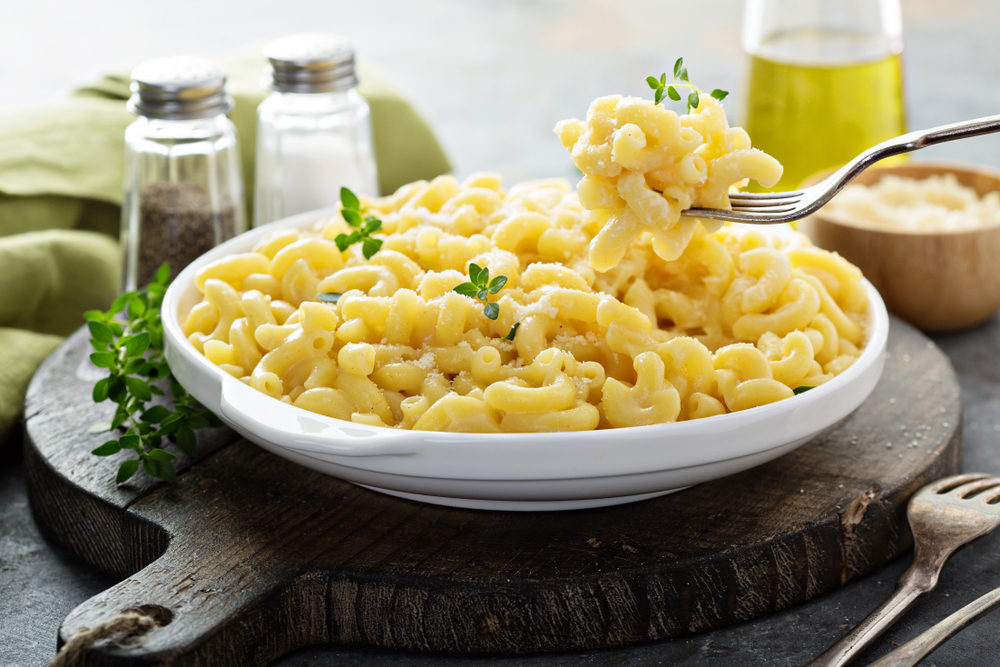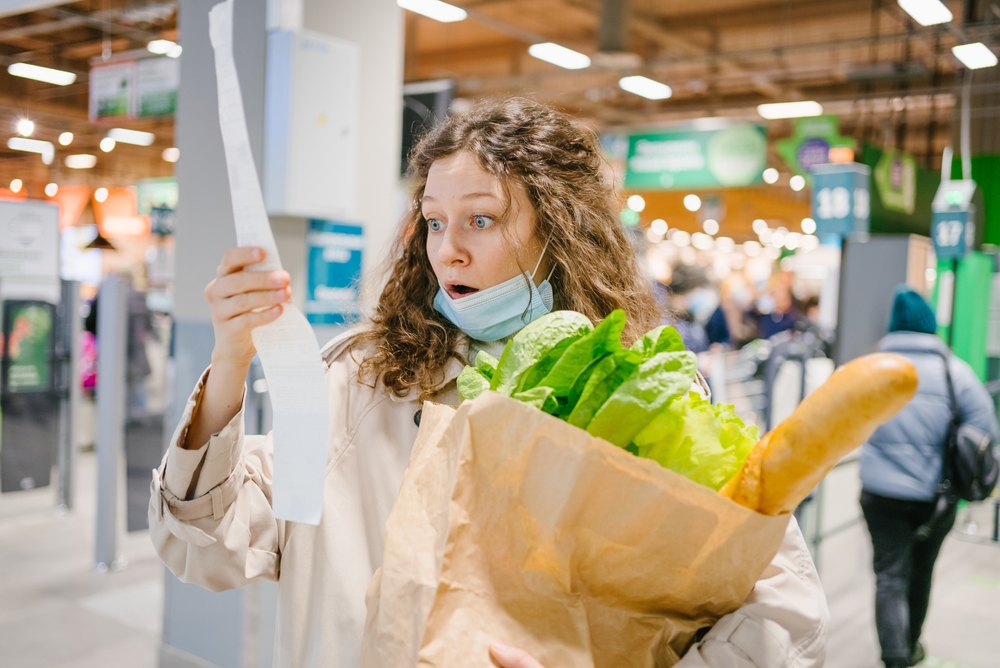SUMMARY
We don’t cut corners to save time and money; it never even crossed our minds. Food safety is vital and necessary to make high quality, nutritious meals you can enjoy. We’ll never compromise on that.
Let’s be honest, not everyone has access to healthy food. Navigating a world of healthier eating seems to get more difficult as time goes on: food insecurity, lack of proper nutritional education, and ever-rising grocery prices make positive dieting choices hard to make.
With the concerning direction that much of the food industry is already heading in, there needs to be a solution to spending hundreds on organic produce or settling for majorly unhealthy drive-thru food.
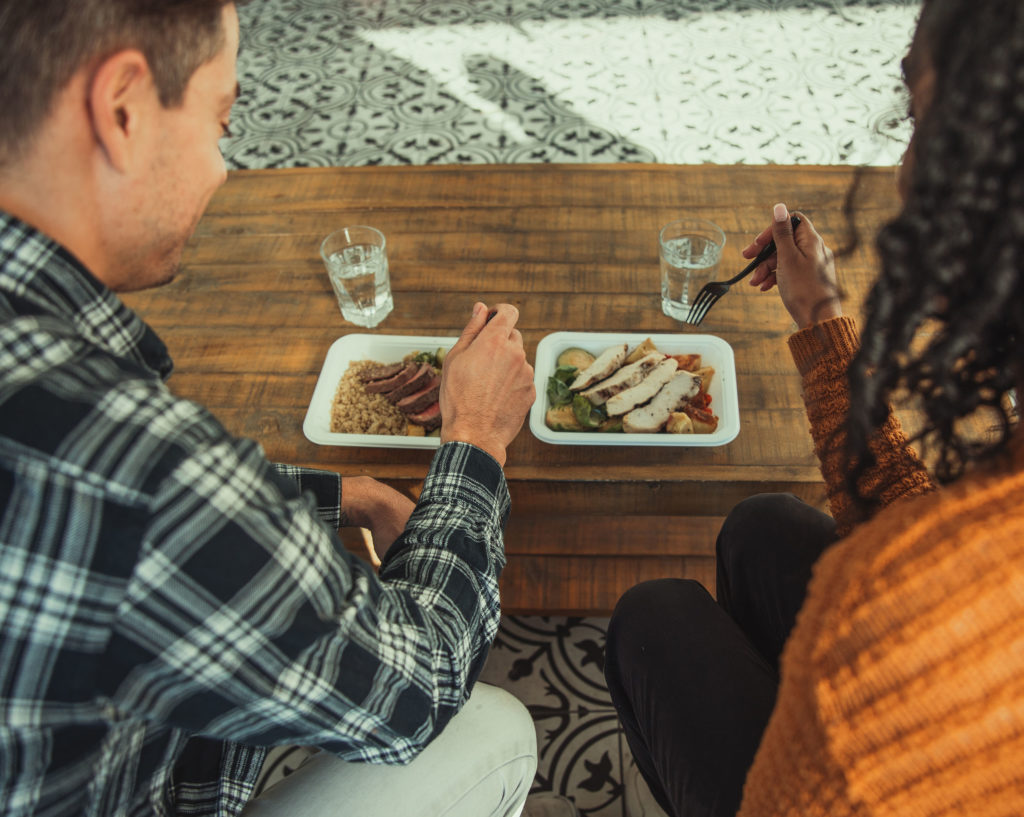
The future of healthy eating (and the key to affordable food) lies with Ready-to-Eat meal services. But first, this industry must take a unified approach to food safety, regulation, and handling. Otherwise, there is no better alternative, and we are yet another obstacle to accessing healthier, affordable food.
Fresh N Lean lives by our food safety culture for this reason and believes the industry of Ready-to-Eat meals can avoid being a part of the problem through dedicated and thorough industry-wide food safety practices.
Table of Contents
Problems with sufficient regulation (or a lack thereof)
Health issues due to lack of regulation
What Fresh N Lean kitchens do to avoid contamination & foodborne illness
– HACCP Programs at Nutrition Corp
– Pre-Requisite Programs that make up our HACCP plans
– Supplier Approval Programs
– Environmental Programs
– Staff Training and Certification
– Carrier Monitoring
Delivering More Than Meals
Consumer trust through a food safety culture
Problems with sufficient regulation
(or a lack thereof)
Ready-to-Eat (or RTE) meal companies offer fully prepared, nutritional dishes that don’t break the bank and cut down on shopping time, food prep, and cooking. However, the benefits of these meal services vanish when the safety of the food itself is unreliable.
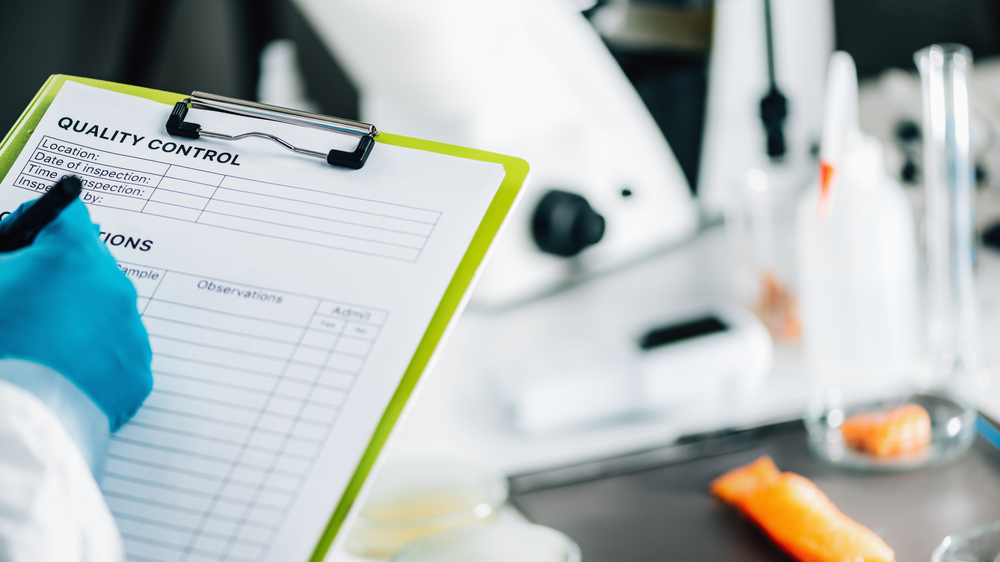
Most meal delivery companies are not regulated by the Food and Drug Administration, nor are they held to the same standards like most other food businesses are – they occupy a “regulatory gray airspace” that lacks formal guidelines.
This presents alarming issues concerning the quality of the food, the risk of contamination and foodborne illnesses, and other things like food fraud (altering food to change its quality while presenting it as authentic). Already, we have seen several health emergencies when food safety standards were not followed properly.
Historical evidence proves strict food regulation is necessary to keep the public healthy
The World Health Organization (WHO) links food safety with quality nutrition and
food security, so it’s safe to say that food industry practices have a large impact on public health.
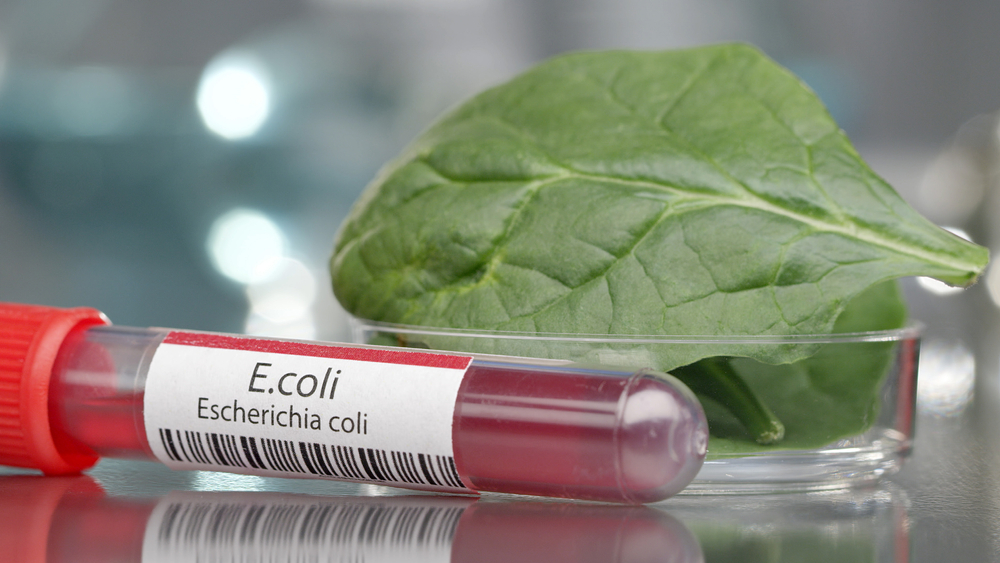
Outbreaks of E. coli and other pathogens like Salmonella and the Norovirus are a major consequence resulting from lapses in safe food and sanitation practices. Over the years, there have been many cases of widespread illness due to foodborne pathogens:
- In 1992, a widespread E. coli outbreak affected over 700 people, leaving over 170 children with health problems (4 of whom died) due to undercooked beef patties.
- Another major E. coli outbreak occurred in 2006 from contaminated ready-to-eat bagged spinach resulting in over 200 total illnesses across the country, with 104 hospitalizations, 31 cases of serious medical complications, and 3 deaths.
- A total of 714 cases, and over 150 hospitalizations from Salmonella were reported in an incident involving contaminated peanut butter in 2008.
- A Listeria outbreak in 2011 from infected cantaloupe caused 147 illnesses and 33 deaths.
Other cases of major foodborne illnesses have been reported by the FDA, outlining the importance of proper food handling standards. A lack of healthy industry safety practices can lead to widespread outbreaks that hurt consumer health.
SUMMARY
Lapses in proper food regulation have led to many cases of foodborne illness outbreaks.
Health issues due to lack of regulation

Each year, 1 in 6 (48 million) people in the U.S. are affected by foodborne illnesses, with 3,000 of those cases ending in death. There are 31 known pathogens that the CDC cites as primary culprits for over 250 types of foodborne diseases with the most common including Norovirus, Campylobacter infections, and Salmonella, Clostridium perfringens, and Staph poisonings.
These foodborne diseases usually cause diarrhea, stomach cramping, fever, body aches, vomiting, and nausea. Campylobacter bacteria in particular can also lead to more serious long-term complications like paralysis, irritable bowel syndrome, and arthritis.
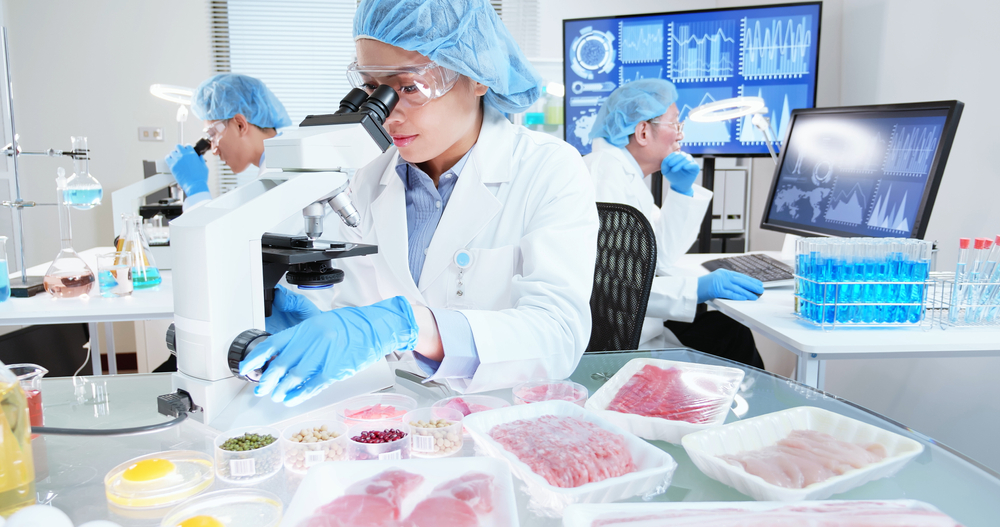
The CDC also cites more serious pathogens that may require hospitalization including Clostridium botulinum (botulism), Listeria, E. coli, and Vibrio. These are more likely to result in major health complications from miscarriages and paralysis to kidney failure and death. Truly alarming!
Studies have found that botulism outbreaks usually happen because of improper food preparation.
Listeria outbreaks caused by produce have been connected to poorly sanitized processing machinery and cross-contamination while E. coli outbreaks have been linked to poor kitchen sanitation and undercooking meat.
SUMMARY
1 in 6 people in the U.S. are affected by a foodborne illness, making food safety a serious public health issue. Norovirus, Campylobacter, Salmonella, Clostridium perfringens, and Staph are the most common foodborne illness culprits which usually cause nausea and digestive problems. Listeria, E. coli, and Vibrio pathogens are more likely to cause serious illness like kidney failure and death.
The best defense against the dangers of foodborne diseases is better regulation
Self-regulation of food handling practices even in a “gray area” industry that doesn’t legally need to do so is the best line of defense against the above dangers. Fresh N Lean’s Chief Operating Officer, Steve Passmore, emphasizes the conscientious manufacturing practices performed within the company.

“I would put us up against any food manufacturer in the country.”
Steve Passmore, Chief Operating Officer
Foodborne illness is the biggest danger in the RTE industry, but Steve Passmore is confident in the prevention and food safety systems Fresh N Lean has in place.
What Fresh N Lean kitchens do to avoid food contamination and foodborne illness
Steve Passmore and the rest of the manufacturing team at Fresh N Lean apply several programs outlining food safety systems in their everyday work. They allow for the identification, reduction, and prevention of potential sources of contamination in our food manufacturing facility that keep the public as protected as possible against pathogenic illness.
HACCP Programs at Nutrition Corp
Fresh N Lean has a USDA Grant of Inspection that ensures we are always following our HACCP (Hazard Analysis Critical Control Points) program, SQF (Safe Quality Foods), and Pre-Requisite programs.
Our HACCP program includes a(n):
These programs are all in line with the Food Safety Modernization Act (FSMA), which was put in place in 2011 to better protect public health. FSMA rules help us focus on preventing food safety issues before they can happen.
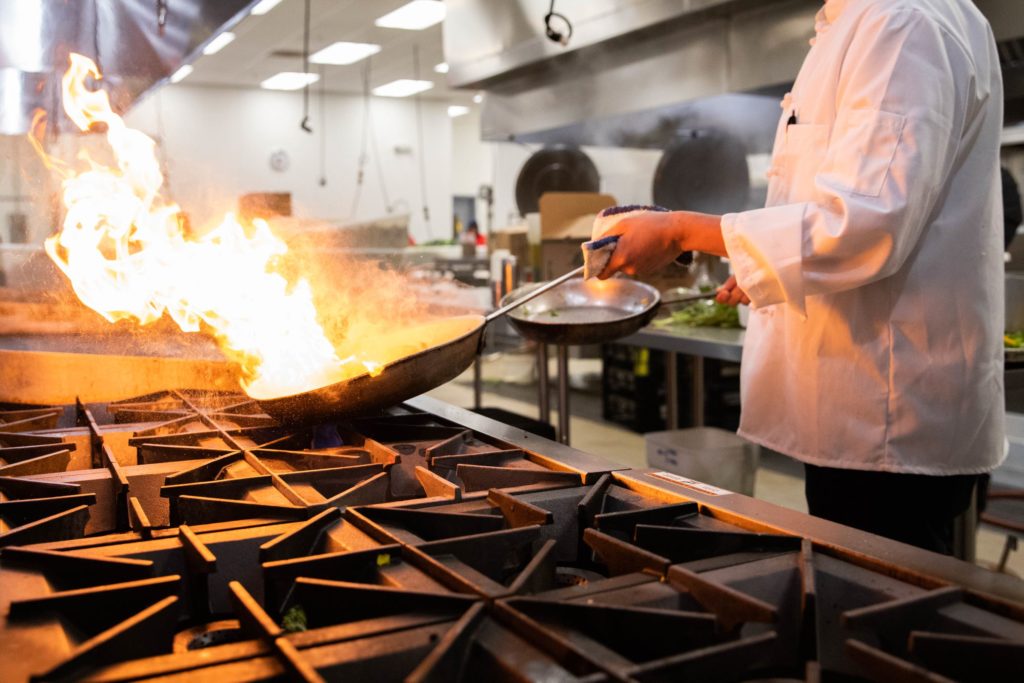
Fresh N Lean holds Level 2 SQF certification with the National Sanitation Foundation (NSF), which is one of the highest levels for food manufacturers and is globally recognized under the Global Food Safety Initiative (GFSI). It holds more specific guidelines than the FDA does, furthering Fresh N Lean’s efforts in a strong food safety culture.
SUMMARY
Fresh N Lean follows HACCP, SQF, and Pre-Requisite programs to make sure our kitchen meets food safety practices outlined by the FSMA.
Pre-Requisite Programs that make up our HACCP plans
Prerequisite programs for HACCP and food safety oversee the operations in Fresh N Lean kitchens, and other food manufacturing areas to keep every part of the system running safely.
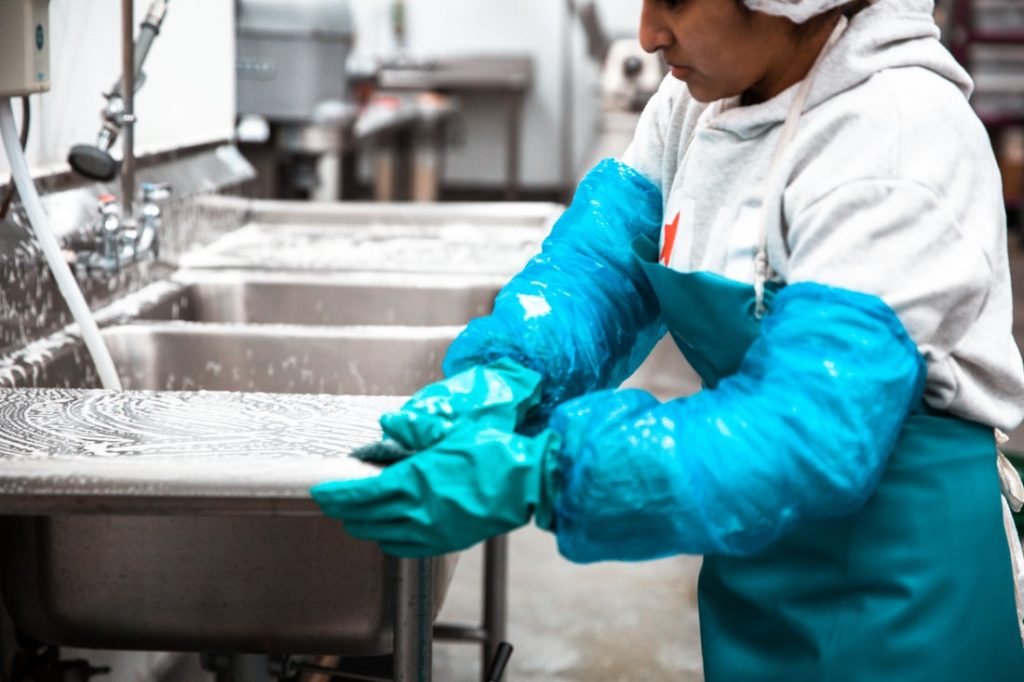
These programs verify all food safety operations including supplier approval programs, environmental monitoring programs, food defense, and food sampling procedures. For Fresh N Lean, this covers things like:
· Making sure the net weight of our meals is accurate · The nutritional quality of our food is verified · Food samples are tested for allergens, pathogens, and other forms of contamination · Temperature, cooling, and cold storage monitoring · Equipment and machinery cleaning and sanitation procedures · Proper waste disposal · Customer complaint policies · Corrective action and control of nonconforming materials and equipment · Food safety training for staff · Overall Good Manufacturing Practices (GMPs) · Hold & Release programs · Monitoring machinery changeovers · Product Identification, Trace, Withdrawal, and Recall Plan · Equipment calibration and inspection · Ingredient supplier assessment and approval · Pest control · Sanitation Standard Operating Procedures (SSOPs) · Metal Detection Procedures · Allergen Control · Accurate documentation for all of the aboveSUMMARY
Pre-Requisite programs oversee food safety operations that keep food free from hazards. These include preventing cross contamination, safe food temperature storage, cleaning procedures, supplier safety, and nutritional accuracy.
Supplier Approval Programs
Supply Chain Preventative Controls ensure we are not given ingredients that will put our customers’ health at risk. Fresh N Lean’s program assures that only high-quality, safely sourced ingredients are used in our products.
We only work with suppliers that undergo recognized third-party audit programs performed by trusted agencies. Fresh N Lean also has a Supply Chain Food Safety program, which includes processes such as receiving Certificates of Analysis on all supplier ingredients to ensure they are genuine and high-quality.
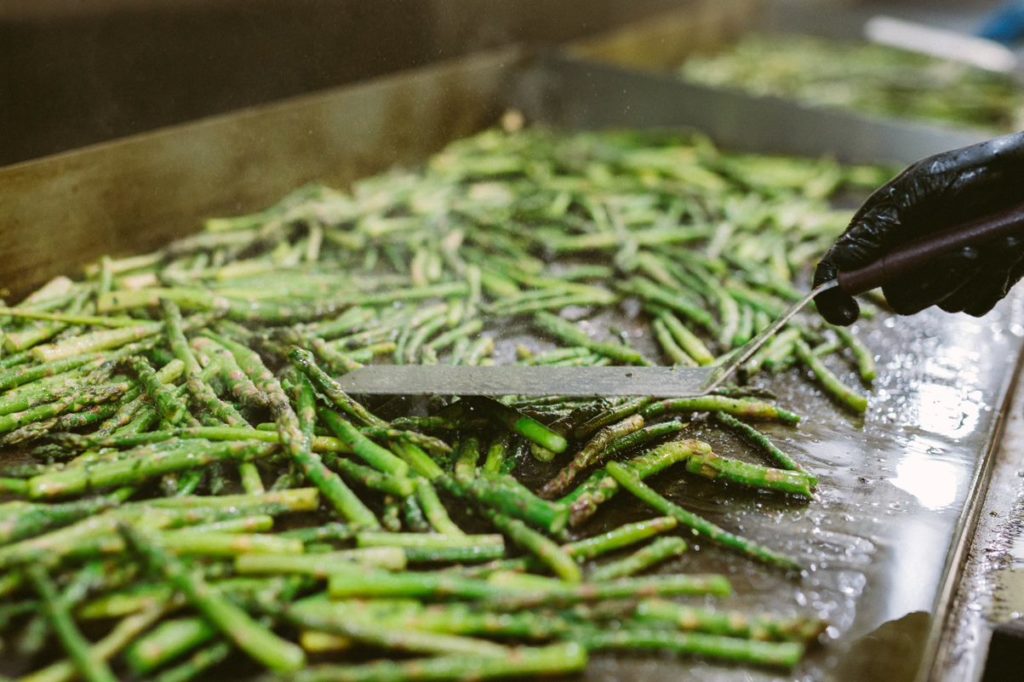
We always follow the rules outlined by our three supplier approval programs:
- SQF-Approved Supplier Program
- FDA Supply-Chain-Applied Control Program
- USDA-Approved Supplier Program
For suppliers that do not participate in third-party audits, we rely on the information supplied by the vendor. This includes looking at their food safety and quality plans, agricultural control descriptions, ingredient testing, and monitoring of conditions to make sure everything is satisfactory.
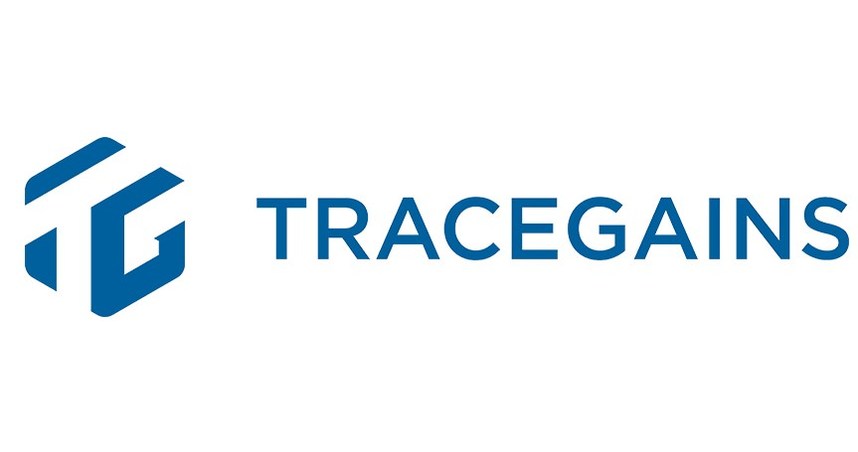
Fresh N Lean uses TraceGains software to manage all the above, which helps us maintain and upkeep the most recent and up-to-date 3rd party audits, Certificates of Authenticity, and updated HACCAP programs from suppliers about their products.
SUMMARY
Suppliers and vendor qualifications are reviewed through third-party audit agencies to verify they have Certificates of Analysis for their ingredients, Certificates of Authenticity, and their own HACCAP programs and safety practices.
Environmental Programs
Surfaces that come into contact with our food are monitored, cleaned, and tested regularly in Fresh N Lean kitchens. Machinery, tables, utensils, and other equipment are tested immediately using EnSure Touch monitoring systems.
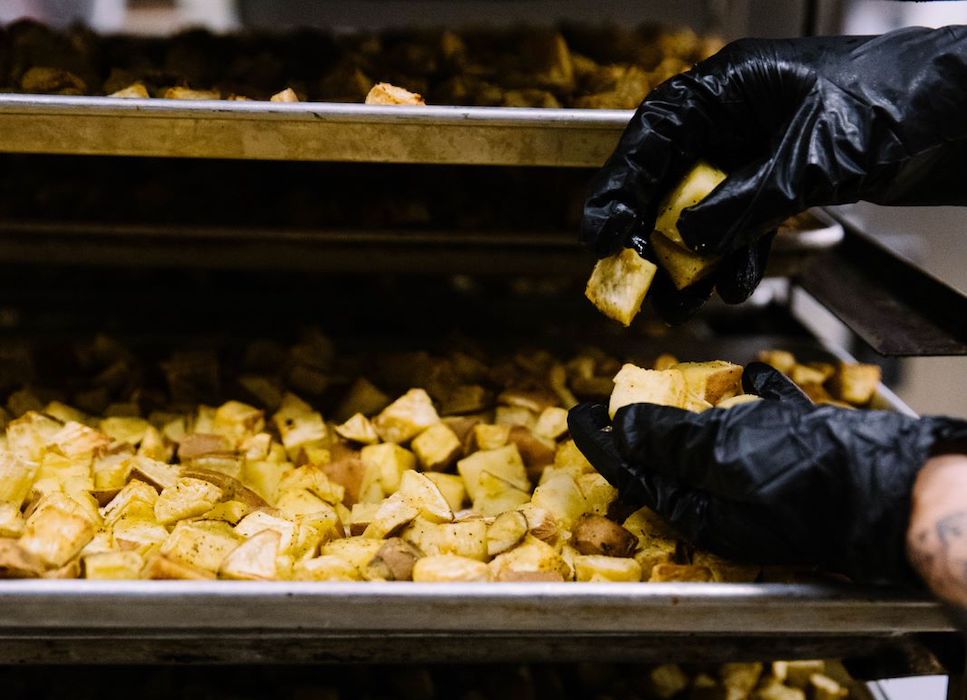
Food samples are also taken and sent to 3rd party labs to test for pathogens before meals are shipped out. Meals awaiting testing results are held onsite until they are cleared (as part of our Hold & Release programs), which prevents things like potential Listeria outbreaks from happening.
SUMMARY
Testing food samples helps monitor food and verify its quality before shipment. Thorough cleaning practices and following a Hold & Release food program help prevent foodborne pathogens from developing.
Staff Training and Certification
Anyone that handles our food ingredients or is involved in food preparation goes through significant food safety training. Kitchen staff are required to undergo a 3-day training orientation and 4-hour annual recertification in food safety, and we have experts on staff who are SQF practitioners and trainers.
Access to food is also strictly monitored to prevent raw materials from being altered or affected.
SUMMARY
Kitchen staff are trained and certified in food safety practices.
Carrier Monitoring
During shipment, the highest risk occurs because once food leaves our facility, things like improper delivery handling can jeopardize the safety of our food. Fresh N Lean does the absolute best to have a Quality Assurance program and cold chain tracking to minimize any risk factors.
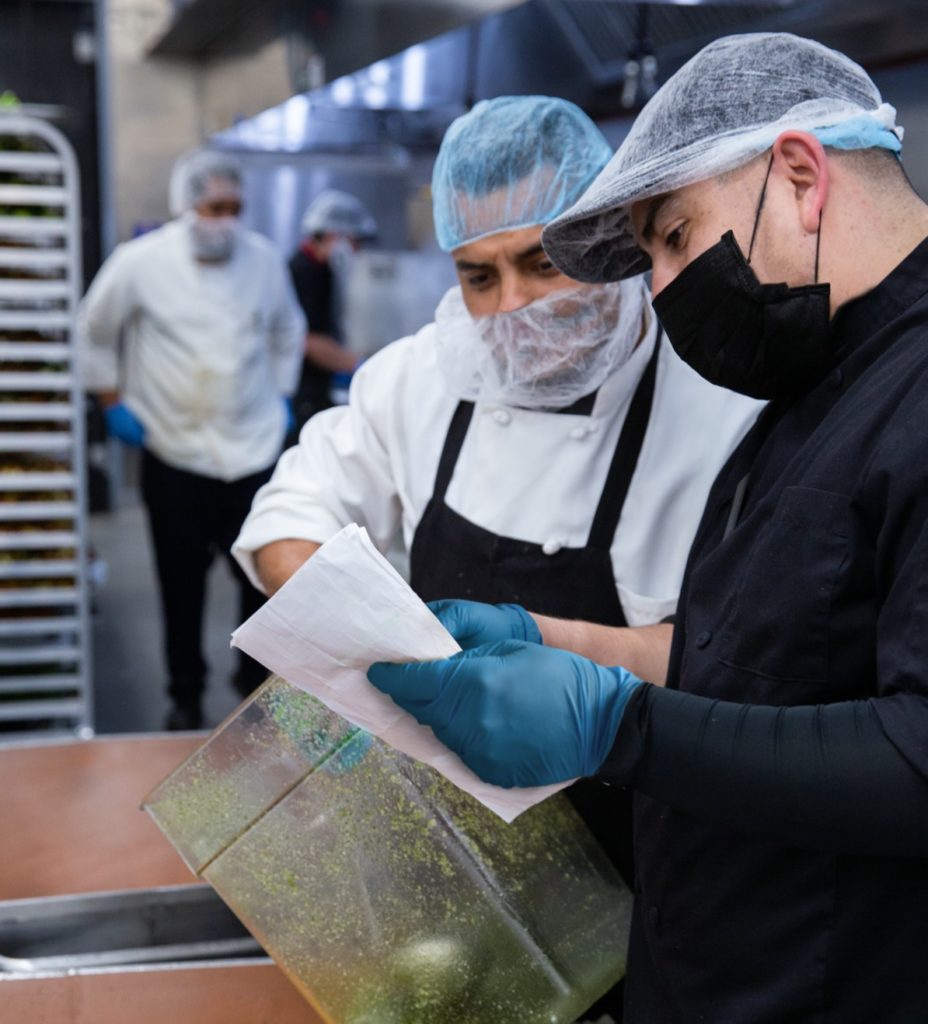
This is why we vacuum-seal our meals and transport them with cold packs in refrigerated trucks. These play their parts in preventing pathogenic bacteria from growing and stopping food from spoiling.
All our transport vehicles have temperature trackers that keep cold chain records to make sure our meals are transported in properly refrigerated environments.
SUMMARY
Delivery and other transport vehicles are required to keep temperature logs to ensure food is transported in safe temperature zones.
Delivering more than meals
The best course for our industry is to seek out and put systems in place that promote the healthiest, highest-quality food. Fresh N Lean believes in organic, premium RTE food that does good across the board – routine cleaned kitchens, thoroughly inspected ingredients, and Certificates of Analysis to prove the authenticity and nutritional value of every ingredient.

These systems are a safeguard against food fraud, foodborne pathogens, and other outcomes that negatively impact public health and safety.
Our confidence in our food allows us to feed high-quality, nutritional food to half a million people for free. By donating about 55,000 meals annually, we also aim to contribute to ending food insecurity and further closing the gap on unobtainable healthy food.
SUMMARY
Fresh N Lean delivers meals through Waste Not OC Coalition to help reduce food waste and make healthy food more accessible to everyone.
Consumer trust through a food safety culture
The impact of RTE meal services can be positive if others in the industry do their part to go above and beyond when it comes to food safety. While the FDA works to strengthen food safety for online RTE meal companies, the industry itself must individually uphold exceptional health standards first.
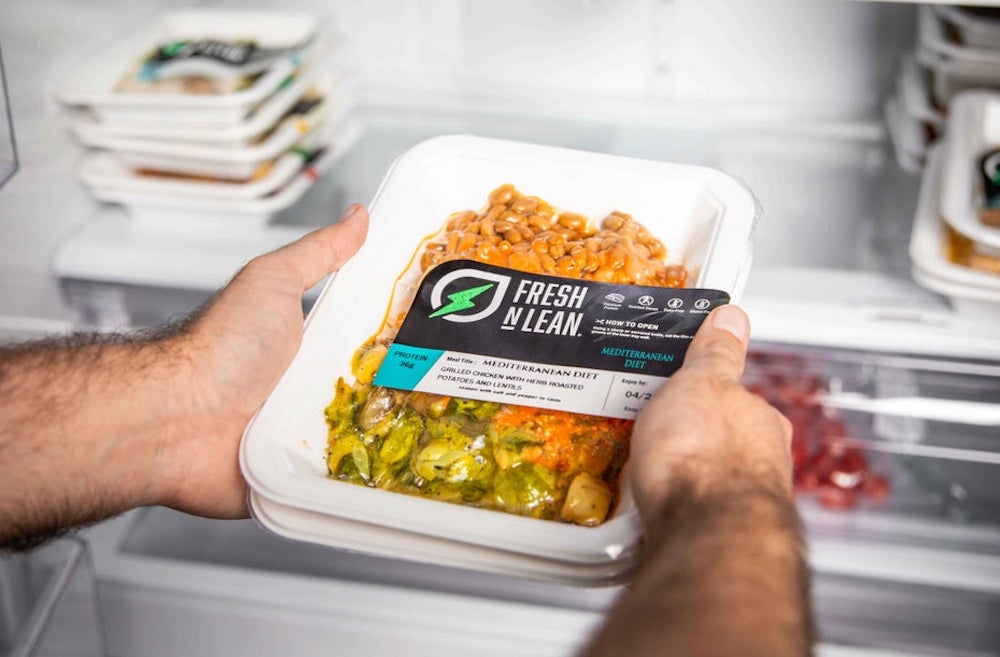
Fresh N Lean lives by our food safety culture. Our customers deserve to feel confident that our meals will not make them sick, and if we want to change current attitudes about healthy eating, we can’t do that if the food is not safe.
High-quality food is not made up of organic labels and expensive price tags, but safe and nutritional ingredients that keep people happy and healthy.
